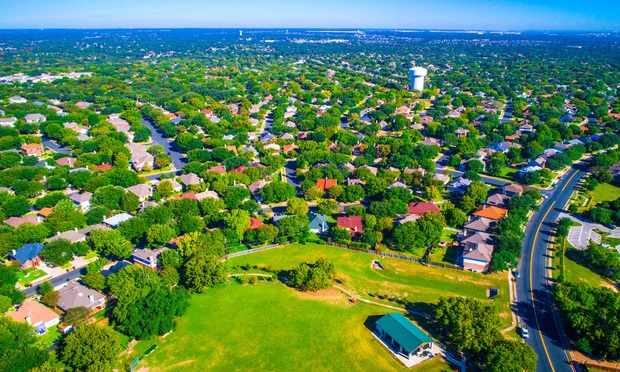
In late April, US oil prices fell below zero for the first time in history. It was a striking moment in the market but was overshadowed by the COVID-19 pandemic that had all but seven states shutdown at that time.
Still, oil and real estate experts say low oil prices and the threat of COVID-19 could fuel residential and commercial real estate exits out of the city.
For its “Weekly Take” podcast, CBRE interviewed author and energy expert Daniel Yergin and CBRE vice chairman Craig Beyer and discussed the global oil market’s impact on office demand and commuting during COVID-19.
Despite low oil costs, COVID-19 will simultaneously increase and decrease the use of cars, Yergin said.
“It’s going to be a preference for people to drive as opposed to public transport, to drive as opposed to flying,” he said, according to a transcript of the podcast. “But at the same time, I think it may be more desirable to work in the suburbs and drive to work.”
Indeed, podcast host and CBRE chairman of Americas research and senior economic adviser Spencer Levy noted he’s seeing a significant rise in tenants in the market in the suburbs, which he expects to last between 12 to 18 months. Some are also renting homes in suburban areas as well, he added.
But Beyer noted most energy companies he’s spoken to are focused on handling coronavirus and simultaneously assessing the “retooling” of the energy sector and not relocation plans. However, companies will evaluate the “geographic constraints” of the cities they are based in, their dependence on mass transit and how social behavior evolves, Beyer said.
“But if companies decide that they want to, you know, spread out a little bit, not have their people so subjected to everybody as a choice. I do think you’re going to see some of the Sun Belt in the Midwest areas expand,” Beyer noted.
When asked if companies based in Houston and other driver-friendly areas would have a competitive advantage, Beyer and Yergin said it was too soon to know.
No COVID-19 vaccine, a potential second wave, the advent of telecommuting and not having a government-subsidized push for electric cars created too much uncertainty, Beyer explained.
Still, energy clients are continuing to evaluate real estate opportunities based on where they can operate the safest, most efficiently and where is most profitable, Beyer said.
“And when you take this rebalance of energy around the world, what you’re also going to pay attention to, is the cost of living and tax structures in these various places, because that’s going to come into play is where people go and work,” he said.
"along" - Google News
June 18, 2020 at 06:05PM
https://ift.tt/3hDok7Z
Post-COVID, Companies May Flock to the Suburbs Along With Their Employees - GlobeSt.com
"along" - Google News
https://ift.tt/2z4LAdj
https://ift.tt/35rGyU8
Bagikan Berita Ini














0 Response to "Post-COVID, Companies May Flock to the Suburbs Along With Their Employees - GlobeSt.com"
Post a Comment